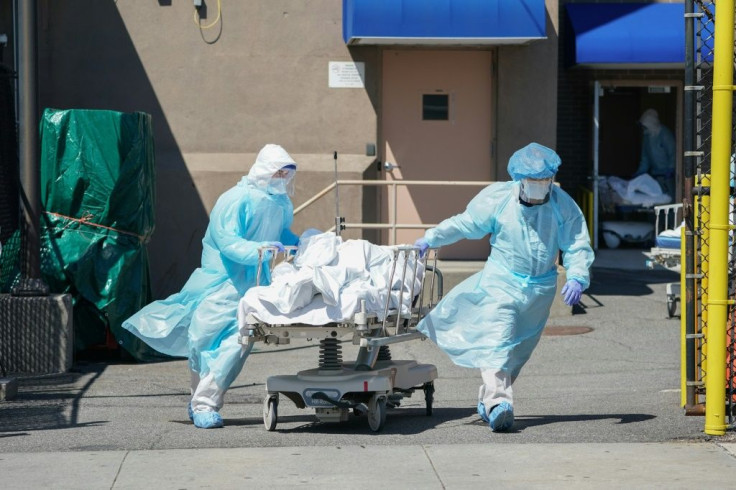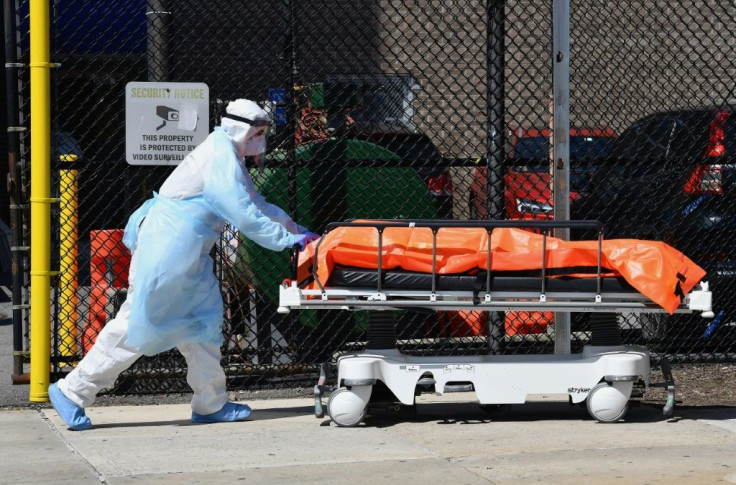Coronavirus Update: First Case Of COVID-19 Transmission From Dead Body To Human Confirmed

KEY POINTS
- A medical examiner in Thailand has died after apparently being infected by COVID-19 from a dead patient
- Buddhist temples refuse to perform funeral services on perons that died from COVID-19
- Medical examiners, morgue technicians and people in funeral homes need to take extra care
Up until this week, the conventional medical knowledge was that bodies of people confirmed to have died from COVID-19 weren't infectious.
The World Health Organization (WHO) had said cadavers generally weren't infectious. The exceptions were persons who died from hemorrhagic fevers such as cholera, Ebola virus disease and Marburg virus disease. WHO, however, said workers who routinely handle corpses risk contracting tuberculosis, bloodborne viruses (hepatitis B and C and HIV) and gastrointestinal infections (cholera, E. coli, hepatitis A, rotavirus diarrhoea, salmonellosis, shigellosis and typhoid/paratyphoid fevers).
WHO also warned the lungs of patients with pandemic influenza -- if handled improperly during autopsies by medical examiners -- can be infectious. The latter reason seemed to be the cause of an alarming report from Thailand confirming the first death of a medical examiner anywhere in the world after contracting infection from a person who died from COVID-19, according to a story from BuzzFeed News.
A study published in the Journal of Forensic and Legal Medicine, issued Sunday, said this "is the first report on COVID-19 infection and death among medical personnel in a Forensic Medicine unit." The death was only the second case reported among medical personnel in Thailand, as of March 20. The journal was a peer-reviewed medical journal covering forensic and legal medicine published by Dutch firm, Elsevier.
Complicating any attempt to determine the extent of cadaver infection was why Thailand doesn't collect this data, which was also the case in many other countries.
“At present, there is no data on the exact number of COVID-19 contaminated corpses since it is not a routine practice to examine for COVID-19 in dead bodies in Thailand," wrote study authors, Won Sriwijitalai of the RVT Medical Center in Bangkok and Viroj Wiwanitkit of the Hainan Medical University in Haikou, Hainan province. “The disinfection procedure used in operation rooms might be applied in pathology/forensic units too."
Very little was known about how long SARS-CoV-2 (severe acute respiratory syndrome coronavirus 2), the virus that causes COVID-19, can survive in dead bodies. It remained unconfirmed if corpses can be contagious to people handling them.
The confirmed death was raising alarm in Thailand since it was only in late March when the head of the Department of Medical Services (a unit of the Ministry of Public Health) announced bodies of COVID-19 victims weren't contagious amid reports Buddhist temples were refusing to perform funeral services. It meant medical examiners and mortuary workers must exercise the sale level of medical care as doctors and nurses caring for coronavirus patients.
“Anyone coming into contact with a COVID19 positive body, alive or dead, should be using personal protective equipment (PPE) to prevent exposure,” suggested Summer Johnson McGee, a health policy expert from the University of New Haven.
She said coroners were increasingly being asked to investigate the causes of death for patients who have died but weren't tested for the coronavirus that causes COVID-19.
“Autopsies and subsequent investigations present real risks for coroners to acquire COVID-19,” she said.
Angelique Corthals, a professor of pathology at CUNY's John Jay College of Criminal Justice said medical examiners, morgue technicians and people in funeral homes need to take extra care because this "is a real concern. We need to take care of the people who take care of the dead.”

© Copyright IBTimes 2024. All rights reserved.





















